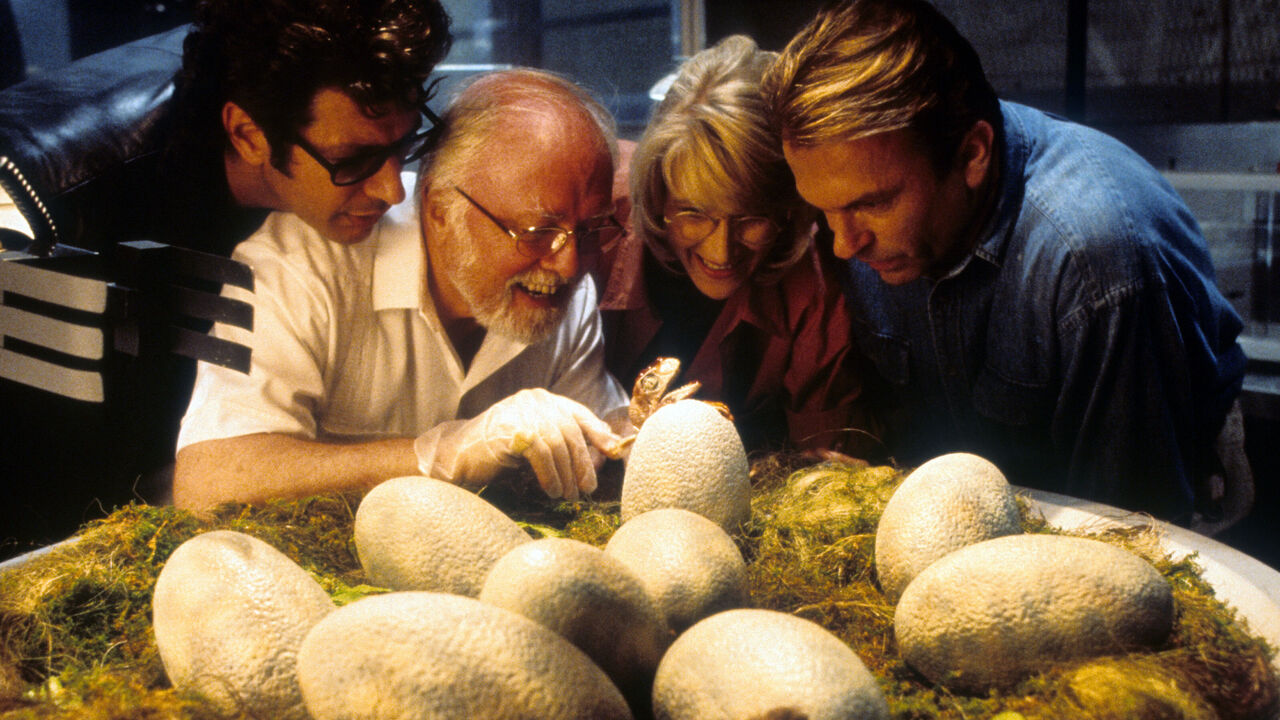The Maple Leafs' only option was to run it back, so buckle up
Chris Tanev is a member of the Toronto Maple Leafs. As is Oliver Ekman-Larsson, joining him on the blue line. Goaltender Anthony Stolarz arrived on a free-agent day that really did feel like a frenzy.
Also on the Maple Leafs: Mitch Marner.
As important as these incoming players could be, it's the outgoing that didn't happen that's likely to define next season in Toronto. The Maple Leafs are running it back, again. It's both kind of incredible and also not that surprising.
The hypothetical Marner trade has been one of the main sports media topics in Toronto for the better part of two months. The reasons for this are simple: The Leafs flopped in the playoffs, again, and Auston Matthews and William Nylander just signed long-term extensions in the middle of career years. John Tavares is at the older and overpaid stage of his contract, so he'd be close to impossible to move even if he was willing to waive his no-trade clause, which he isn't. That leaves Marner.
The winger is 27 years old and carries a big salary, which means he's ideal for the kinds of trade scenarios that fill up sports radio segments on an early summer day. Pick a team with a top-pair defenseman, high-end prospect, and some draft capital, and they have assuredly been proposed as a potential Marner destination in recent weeks.
Except Marner wasn't having any of it.
From the moment the Leafs lost in Game 7 of the first round to the Boston Bruins, there's been no indication from Marner or anyone close to him that he would be willing to drop his no-trade clause and accept a move elsewhere for the final season of his current contract.
And why would he? As it stands, he'll play another season next to Matthews, one of the best goal-scorers in the game, pile up more points, and hit unrestricted free agency next summer, able to choose among what would be many high-dollar contracts. Alternatively, if the Leafs make him a giant extension offer between now and then, as they did with Matthews and Nylander last season, he could stay with his hometown team.
The other scenario, the one that everyone has spent so much time discussing since April, is the least appealing option for Marner: Surrender the chance to hit free agency and accept a trade to an unfamiliar team, signing a long-term contract there so they would be willing to give the Leafs a better return in the deal. That's great business for the Leafs, much less so for Marner. It's like the opposite of that famous Jeff Goldblum quote from "Jurassic Park": Everyone spent so much time wondering if the Leafs should trade Marner that they didn't stop to think if they could.

All of this has been evident since right about this time last year when Marner's no-trade clause kicked in. The opportunity to move him was last spring before he gained full control over his future. But Brad Treliving was new to the GM job in Toronto, a rushed arrival after the unexpected Kyle Dubas divorce, and it's been said that he didn't want to smash the blow-it-up button quite so quickly.
But he had a month between joining the front office and the July 1 deadline, plenty of time to evaluate a potential Marner deal. And with the no-move clause looming, why didn't team president Brendan Shanahan make reshaping the roster the first order of business for his incoming GM? You want the job, Brad? Tell me how we are going to fix this.
The alternative path, the one the Leafs chose because they didn't want to do anything too rash, is the one they are dealing with now. Another year, another early playoff exit - eight seasons, one playoff series victory - and much less ability to do anything about it because the most tradable asset isn't tradable any longer.
The handy thing for Treliving, Shanahan, and new coach Craig Berube is that running it back again might eventually work. The defense corps is deeper now, and the departure of goaltender Ilya Samsonov is probably best for all parties. The recent Stanley Cup Final neatly illustrated that no one really knows what's going to happen in playoff hockey anyway. First, the Edmonton Oilers had their flaws exposed and dissected, then the Florida Panthers were on the verge of an unprecedented collapse, and, in the end, Game 7 came down to an untimely soft goal and a couple of bounces that didn't quite go Edmonton's way.
Is it inconceivable that the Leafs could find themselves in the middle of a lengthy playoff run if they pair a sturdier defense with an Oilers-style heater from their high-end forwards? It's not. But it's also true that we've been here with this team before. Many times.
At least if the coming season ends in another early playoff disappointment, there will be one significant difference: No one will have to waste their time speculating about a Marner trade.
Scott Stinson is a contributing writer for theScore
HEADLINES
- 7 major NFL milestones in sight ahead of season's final stretch
- Projecting United States' 2026 Olympic men's hockey roster
- Report: Eagles' Carter week-to-week after undergoing shoulder procedure
- Dodgers' Roberts: 'I'm all right' with MLB salary cap, floor
- Kelce among 32 nominees for Walter Payton Man of the Year Award